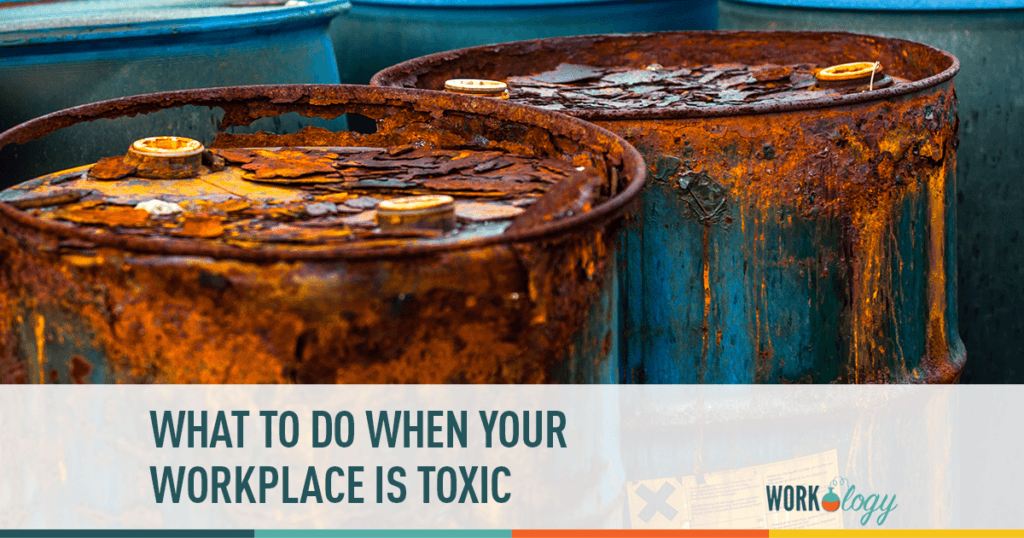What To Do When Your Workplace Is Toxic
In my last post, I discussed how to handle a toxic employee. What happens if it’s more than just a single employee who is toxic? What do you do if you find yourself in a toxic workplace? Working in a toxic environment can affect physical health, mental health, personal relationships and more. For these reasons, it is important to take steps to take care of yourself.
What Are the Signs of a Toxic Workplace?
Symptoms of a toxic work environment may include major communication problems, bad leadership, low morale and a high rate of blaming others and employees lashing out at each other. Toxic workplaces also tend to have policy problems—it might be inconsistent policies or policies that are too restrictive. If you are working in such a workplace, it is common to feel physical symptoms such as upset stomach, headaches and trouble sleeping. It is also common to have emotional problems like anxiety or depression.
Going to work each day should not send you toward a panic attack or extreme stress response. Work can be stressful sometimes, but this should not be your normal way of approaching your job.
Getting Help to Fix the Problem
If the problem is isolated to your department or a bad manager, there may be hope for fixing the problem. Keep careful documentation of the problems, and go to HR for help. If you are in HR and find yourself on the receiving end of a grievance about a toxic workplace, take the complaint seriously and be a good listener. Once you get the information, treat it like any workplace investigation. Look into the problem, and interview other employees. Get a feeling for what is really going on in the workplace, so you can address the problems.
If a few specific people are creating the toxic environment, use the approaches I mentioned in my last post on toxic employees. If there are bigger issues, address them one-by-one. This may mean enlisting outside help such as a counselor, life coach or someone who can provide training on good communication.
Knowing When it’s Time to Leave
When the workplace is toxic, it may be a problem with the environment created by the owner and top management. In cases like this, it may be best to leave a company. I once worked for a company where the owner often expressed that he did not trust his employees. He encouraged us to draft policies with the assumption that employees were going to lie, steal and take advantage of the company. This attitude trickled down to upper management and created an unhealthy environment. The HR director had a reputation for being a bully and would regularly lash out at those of us on the HR team and employees throughout the company.
The working environment was challenging. Every time we held a staff meeting, my HR coworkers and I all appeared as though we were ready to face a firing squad out of concern for our boss’s mood. My decision to quit was made by the company when they decided to fire a number of workers due to poor business conditions, including myself. I learned from the experience that I should have quit sooner because I was able to land a position at a respectable business with a helpful manager. I became aware of what a workplace should be thanks to my new position.
The lesson from my story is to pay attention to the signs. When your job starts to affect your stress level that much and you fear things like staff meetings, it is time to move on and find a healthy environment. Sometimes the problems in a workplace are just to big. In this case the tone of the workplace was set by the owner and HR director. That was never going to change.
Taking Care of Yourself
It is important to seek out care and support when you are dealing with a toxic workplace. This may include exercising regularly, eating healthy, taking up a hobby or perhaps seeing a therapist. A good therapist will help you realize that the problems you process your experience and give you tools to avoid toxic situations in the future. It is also good to turn to your own support network of family and friends. These people can provide a positive environment that is counter to what you experienced at work.








2 Comments
Great reading Stephanie! Thank you!
You’re welcome. Thanks for reading!
Comments are closed.